Uncategorized
-
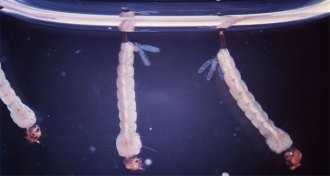 Animals
Animals50 years ago, U.S. fell short on mosquito eradication
Researchers boldly predicted mosquitoes’ demise 50 years ago. They never came close.
-
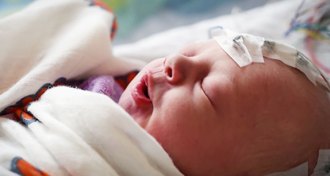 Neuroscience
NeuroscienceA baby’s pain registers in the brain
EEG recordings can help indicate whether a newborn baby is in pain, a preliminary study suggests.
-
 Science & Society
Science & SocietyMarch highlights questions about benefits of science
Acting Editor in Chief Elizabeth Quill discusses the intersection of science and activism.
-
 Health & Medicine
Health & MedicineReaders concerned about cancer’s sugary disguise
Tricky cancer cells, brain-shaping smartphones, a cow-burying badger and more in reader feedback.
-
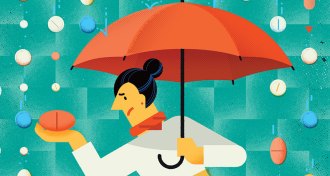 Health & Medicine
Health & MedicineYes, statins protect hearts. But critics question their expanding use
Even after decades of study, questions remain about statin safety.
By Laura Beil -
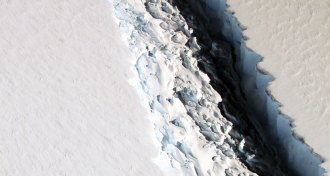 Earth
EarthCrack in Antarctica’s Larsen C ice shelf forks
An 180-kilometer-long rift in Antarctica’s Larsen C ice shelf has forked into two branches, new satellite observations show.
-
 Climate
ClimateRadical idea could restore ice in the Arctic Ocean
Windmill-powered pumps on buoys throughout the Arctic Ocean could help bring back shrinking sea ice, researchers say.
By Sid Perkins -
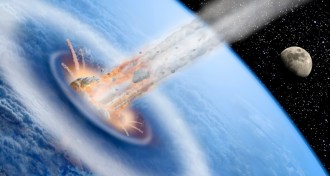 Planetary Science
Planetary ScienceHere’s how an asteroid impact would kill you
Most deaths caused by an asteroid impact would result from shock waves and winds generated from the blast, rather than effects such as earthquakes and tsunamis, new simulations show.
-
 Anthropology
AnthropologyWater tubing accidents, table run-ins cause Neandertal-like injuries
People’s injury patterns today can’t explain how Neandertals got so many head wounds.
By Bruce Bower -
 Chemistry
ChemistryChemistry controlled on tiniest scale can create hollow nanoparticles
Oxidizing tiny iron particles from the inside out reveals how oxidation works and could offer new vehicles for drugs or energy.
-
 Climate
ClimateLakes worldwide feel the heat from climate change
Lakes worldwide are warming with consequences for every part of the food web, from algae, to walleye, to freshwater seals.
-
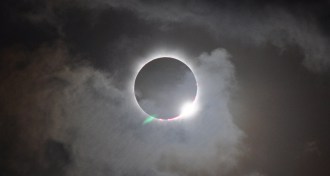 Astronomy
AstronomyRead up on solar eclipses before this year’s big event
Three new books chronicle the science, history and cultural significance of total solar eclipses.
By Sid Perkins